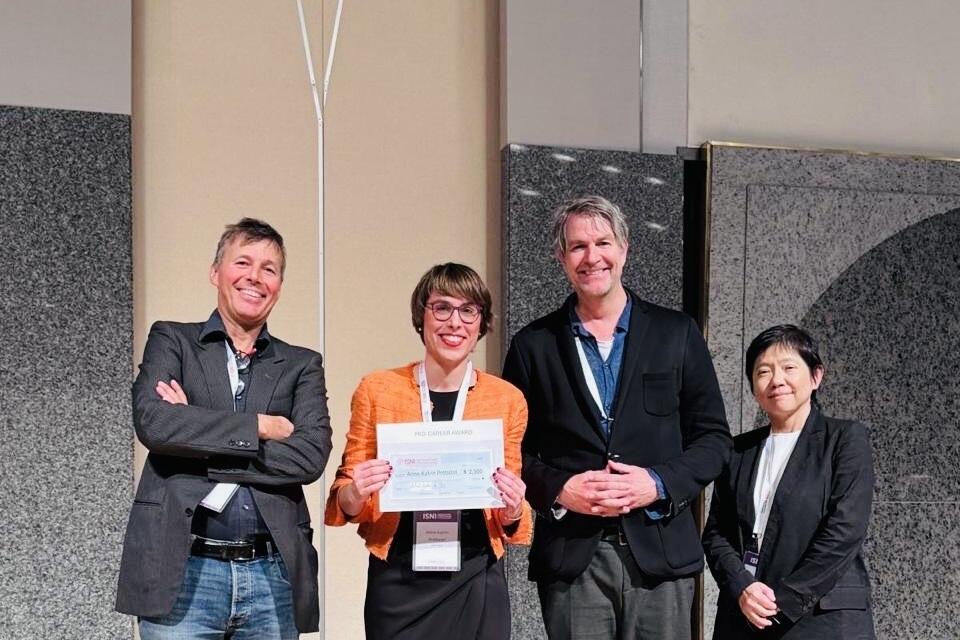The European Research Council is funding the Bonn professor of systems immunology and proteomics with around 2 million euros.
Inflammatory processes are a fundamental part of the body's defense system. But how are these processes regulated at the molecular level? How do the involved cell types coordinate their action? These are the questions that biochemist and systems immunologist Prof. Dr. Felix Meißner of the Bonn Cluster of Excellence ImmunoSensation2 at the University Hospital Bonn is addressing. For his research, he now receives the coveted Consolidator Grant of the European Research Council (ERC). The selected project of the Bonn professor will be funded with about 2 million euros.
The functions of the immune system are manifold and go far beyond the defense against pathogens such as bacteria and viruses. Mechanical irritation or injury, infarction or other trauma cause so-called "sterile inflammation", in which no pathogens are involved. Dying cells in damaged tissue triggers a kind of "fire alarm" by sending out messenger substances. These messenger substances, also called cytokines, recruit cells of the immune system to the site of action. Here they help remove dead cells and initiate tissue repair.
Fire alarm in the tissue
Inflammation is thus essential to maintain or restore the healthy state of tissues. However, if the regulation is disturbed, aberrant inflammatory processes may occur. The consequences are chronic inflammatory diseases such as rheumatoid arthritis or gout. With the research project "FIREALARM", now funded by the ERC, Prof. Dr. Meißner aims at deciphering the molecular basis for the regulation of these inflammatory reactions.
Communication at the molecular level
In order to coordinate a targeted inflammatory process, constant communication between all involved cells is essential. For this purpose, a vast amount of cytokines is released, which act on neighboring or distant cells. Mass spectrometry offers a possibility to elucidate the complex communication on a molecular level. The technique allows the comprehensive identification of cytokines in a mixture of molecules. "In my research group, we are developing mass spectrometry-based proteomics to identify thousands of different cellular messengers to understand inflammation and recovery processes," says Prof. Meißner. Proteomics is the study of all proteins involved in a biological process. In his study, Prof. Meißner would like to pay particular attention to dying cells. "With the ERC-funded project, we will set out to find endogenous messenger substances that are emitted by dying cells and play a role in sterile and chronic diseases."
Promising young researcher
Prof. Meißner earned his doctorate at the Max Planck Institute for Infection Biology in Berlin. After research stays at the Max Planck Institute of Biochemistry in Martinsried and the University of California in San Francisco, he has been an independent research group leader for "Experimental Systems Immunology" at the Max Planck Institute of Biochemistry in Martinsried since 2015. Since 2021, he heads the department of "Systems Immunology and Proteomics" at the Institute of Innate Immunity, University Hospital Bonn.
Funding by the European Research Council (ERC)
The European Research Council was established in 2007 and mandated by the European Union to promote outstanding basic research in Europe based on scientific excellence and the potential for innovation. ERC Consolidator Grants are awarded to first-class young scientists and support them in consolidating their scientific independence. "This award enables me and my team to develop an exciting new field of research in the optimal scientific environment of the Institute of Innate Immunity and the Cluster of Excellence ImmunoSensation2 at the University of Bonn" says Prof. Meißner.
Press contact
Science Communication and Public Relations
Cluster of Excellence ImmunoSensation2
Phone: +49 (0)228-287 51283
E-mail: david.fusshoeller@uni-bonn.de



